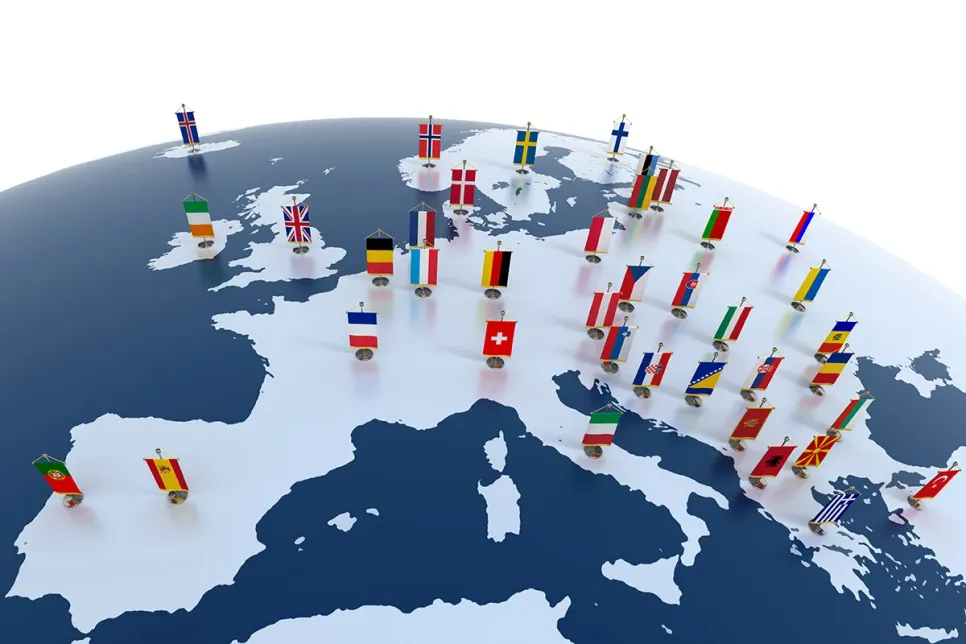April Tesla Sales Dive Across Europe
Tesla’s sales continued to plunge across Europe in April, even as car buyers there increasingly buy electric vehicles.

The first report on the State of the Digital Decade provides a comprehensive look at progress toward achieving the digital transformation to empower a more digitally sovereign, resilient, and competitive EU. It includes an assessment of the EU's performance towards Europe's 2030 objectives and targets focusing on four main pillars: digital skills, digital infrastructure, digitalization of businesses, including the use of AI, and digitalization of public services. It also includes monitoring the European Declaration on Digital Rights and Principles.
The 2023 report, the first of a series of annual reports, is a call to Member States for collective action to address the current investment gaps, accelerate digital transformation in Europe, and intensify efforts to reach the objectives of the Digital Decade Policy Program (DDPP). It entered into force on 9 January 2023 and includes a system of collaborative governance between the EU and national authorities.
Under the current 2030 target, gigabit coverage should be available for everyone and 5G performance networks in all populated areas. Currently, fiber networks only reach 56% of households, while 5G coverage is 81% of the population, dropping to 51% in rural areas. The deployment of 5G standalone networks is lagging and 5G is still falling short in quality with regards to end-users' expectations and industry needs. 55% of rural households are still not served by any advanced network and 9% are not yet covered by any fixed network at all. Additional investment of up to at least €200 billion is needed to ensure full gigabit coverage across the EU as well as 5G coverage in all populated areas.
In the area of the semiconductor, the current 2030 target is for the EU to double its share in the value of global production of cutting-edge semiconductors, reaching from the current 10% to 20% of the global market share in value. To achieve this target, the European Chips Act aims to develop a thriving semiconductor ecosystem and resilient supply chains. Member States should promote national policies and investments to further stimulate domestic chip design and manufacturing capabilities and to boost local skills in advanced technologies across sectors.
The DDPP sets three targets to foster the digitalization of businesses. At least 75% of EU enterprises should adopt in their operations cloud computing services, big data, and/or AI; more than 90% of small and medium businesses should reach at least a basic level of digital intensity; and the EU needs to double the number of unicorns. Without further investment and incentives, the projected baseline trajectory indicates that by 2030 only 66% of businesses will use cloud, 34% big data, and 20% AI. Furthermore, only 69% of EU SMEs reach a basic level of digital intensity, with uneven and insufficient progress among Member States. The number of EU-based unicorns has increased significantly in the past decade. A continuation of the trend would allow the EU to meet its target before 2030 but is no ground for complacency in volatile markets. At the start of 2023, there were 249 unicorns based in the EU, compared to 1,444 in the US and 330 in China.
The DDPP targets provide for 100% online accessibility of key public services and, where relevant, the possibility for citizens and businesses in the Union to interact online with public administrations, online access to their electronic health records for 100% of Union citizens, and access to secure electronic identification (eID) for 100% of Union citizens. Many Member States are well-positioned to achieve the full digitalization of public services and health records, as well as the deployment of the eID for their citizens. However, significant investments are needed to improve the cross-border availability and performance of public services. Regarding the European Digital Identity Wallet, its full deployment is underway. It is expected to be completed by 2030 and complemented by the Digital Euro.
The EU is committed to increasing basic digital skills among at least 80% of those aged 16-74, and to reach 20 million ICT specialists by 2030. However, the report shows that by 2030 and under the current conditions, only 59% of the population will master at least basic digital skills, and the number of ICT specialists may not exceed 12 million. Member States need to prioritize investments in high-quality education and skills and foster women's participation in STEM from an early age.